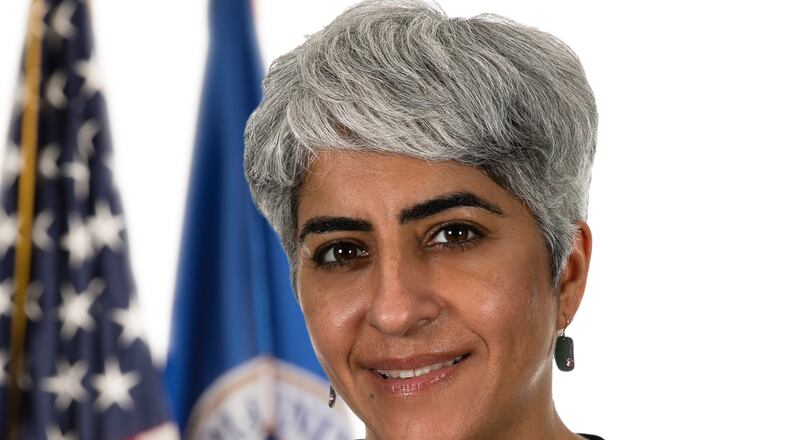Kiran Ahuja is on a mission. The top recruiter for the federal government, Ahuja needs talent, especially younger, tech-ier workers.
Just as Fortune 500 corporations, mid-sized companies and startups need coders and technologists, so does Uncle Sam and its dozens of agencies.
Ahuja, director of the Office of Personnel Management, which oversees hiring for the 2.2 million-person federal workforce, said there are about 1,000 job openings in metro Atlanta for federal jobs, in addition to about half that number that could be done from anywhere.
“We want to compete for the people you have here, especially tech talent,” Ahuja, a graduate of Spelman College and the University of Georgia Law School, said last week during an interview with The Atlanta Journal-Constitution.
Demographics makes hiring young workers in Atlanta especially important, she said. Corporate America isn’t alone with a graying workforce.
One-third of the federal workforce is now eligible to retire, while fewer than 7% of federal workers now are younger than 30, she said.
“We want institutional knowledge, but we need early career talent,” she said.
Recruiting at a time of near record low unemployment has been fraught for many employers.
Techies are in special demand: Fewer than 4% of federal workers in technology jobs are younger than 30.
“We have historically in government had a challenge in recruiting tech talent,” Ahuja said. Atlanta is a rich target for hiring young workers because of the area’s many schools, she said. “And I am sort of the chief recruiter for the federal government.”
In general, people can make more money in the private sector for jobs that require training in science, technical, engineering and math, she said. “We understand that. But there are other ways we can be competitive.”
Government can offer generous benefits — health and retirement, especially — and, depending on the job, there can be flexibility in hours and the ability to work remotely. Moreover, those with student loan debts who work for the federal government for a decade can have their loans forgiven, Ahuja said.
“We also think we can win on mission,” she said. “There is compelling work to do.” Especially in demand is expertise in cybersecurity and software.
The Office of Personnel Management handles USA Jobs, the online site that currently lists about 1,000 jobs in metro Atlanta, as well as 500 that could be done remotely from Atlanta. Last year, USA Jobs listed nearly 10,000 open positions for metro Atlanta including jobs with 146 agencies. Among the most common postings were for the Internal Revenue Service, the Centers for Disease Control, Veteran’s Health Administration and the Federal Aviation Administration.
Georgia has more than 75,000 federal employees, about one-third of them in metro Atlanta.
Because the federal government was willing to hire and promote Black workers when much of the private sector — especially in the South — resisted, the government has been a major force in building a Black middle class.
In most of the economy, men are paid more on average than women, but the gap is smaller in the government, Ahuja said: a 5.6% spread, instead of 16%
A recent law also requires federal hiring managers to postpone background checks on applicants until the managers are ready to make a conditional offer. That means someone with an unrelated criminal record will not be screened out early.
“It doesn’t matter where you get your skills, it matters that you can show that you have those skills,” she said.
Positions related to national security or law enforcement are excepted from that requirement, she said.
Ahuja was also in Athens at week’s end to speak at the ceremonies for graduates of the UGA School of Public and International Affairs in Athens.
“I think it’s an important degree,” she said. “And I will be shameless in recruiting.”
About the Author
The Latest
Featured

